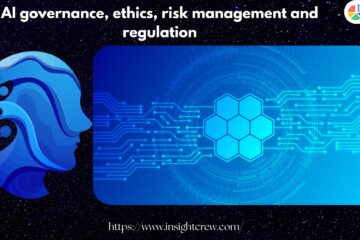The Significance of AI Chatbots in Contemporary Customer Support
AI chatbots are now an essential component of customer service, revolutionising how companies respond to questions and offer assistance. With features such as multilingual support and round-the-clock assistance, AI chatbots help meet customers’ demands for quick, reliable, and easily accessible service. AI chatbots allow businesses to offer individualised experiences, promptly resolve problems, and raise customer satisfaction as their needs change. With these essential features, AI chatbots offer scalable solutions that allow businesses to efficiently manage customer interactions and ensure quality service at every touchpoint.
Top Customer Service AI Chatbot Features
- Round-the-clock customer service and prompt responses
The ability of AI chatbots to offer 24/7 assistance is one of their most notable qualities, guaranteeing that clients get assistance whenever they require it. AI chatbots can respond to questions instantly because they don’t need breaks like human agents do. For international companies with clients in different time zones, this feature is extremely beneficial. Being available around the clock allows customers to take care of problems whenever it suits them, which improves the brand’s reputation. Chatbots increase customer satisfaction and trust because they are available around the clock.
- Support for Multiple Languages for Worldwide Accessibility
Businesses can effectively communicate with a global audience by using AI chatbots that support multiple languages. Without the need for specialised agents, this feature allows businesses to serve clients who speak different languages with ease. Chatbots make it simple for clients from other countries to feel included and appreciated by providing consistent support in multiple languages. This ability to speak multiple languages is crucial for companies trying to reach a wider audience and serve a variety of markets. The customer experience is greatly enhanced when services are rendered in the client’s mother tongue.
- AI-Powered Customised Customer Experiences
Customer satisfaction is largely influenced by personalisation, and AI chatbots are excellent at it since they use data to customise their responses. Chatbots can personalise conversations by examining past exchanges, purchases, or other relevant information. This consideration for each customer’s needs demonstrates to them that the brand respects their individual preferences. Long-term loyalty is fostered by personalised experiences, which strengthen the bond between the consumer and the brand. Consumers value the customised approach because it can make interacting with the chatbot seem more engaging and human.
- Sentiment Analysis to Determine the Mood of Customers
AI chatbots can identify a customer’s emotional state through sentiment analysis and modify their responses to create a more sympathetic exchange. For instance, the chatbot may prioritise the customer’s question or recommend that it be escalated to a human agent if the customer expresses frustration. Effectively handling customer emotions and responding appropriately depends on this feature. AI chatbots can help defuse tense situations and enhance the customer experience by identifying and reacting to sentiment. Sentiment analysis ensures that every interaction is considerate of the client’s needs and feelings.
- Qualification and Lead Generation
By collecting data from clients during conversations, AI chatbots can be effective lead generation tools. The sales team can concentrate on high-quality prospects by using chatbots to qualify leads and ascertain their needs by posing the appropriate questions. With the help of this feature, companies can use natural conversation to seize possible sales opportunities. Chatbots for lead generation ensure that no potential customer is missed and streamline the sales funnel. Chatbots facilitate a smooth transfer of information to sales for follow-up by collecting pertinent data.
- Consistent Experience through Omnichannel Support
AI chatbots can function through a variety of platforms, such as messaging apps, social media, and websites, providing users with a consistent experience wherever they engage. Customers can contact us via the platform of their choice and get the same level of service thanks to this omnichannel support. Improved brand visibility across channels and smooth communication are advantageous to businesses. Customers are more likely to trust and interact with a brand that provides consistent service across all platforms. Customer service is more convenient and accessible when it is omnichannel.
- When necessary, escalation to live agents
Even though AI chatbots are capable of answering a lot of questions, human support is sometimes needed. AI chatbots are able to determine when escalation is required, guaranteeing that clients are promptly connected to a live agent. In delicate or complicated situations, this feature is crucial to preserving client satisfaction. Without sacrificing effectiveness, the chatbot improves service quality by determining when to engage a human agent. The customer has a flawless experience thanks to the chatbot’s seamless transition to the agent.
- Security and Privacy Measures for Data
In consumer interactions, data security and privacy are crucial, and AI chatbots are outfitted with protections to preserve private data. Customer data security is guaranteed by features like data encryption and adherence to laws like GDPR. Because users are aware that their information is secure, these security measures increase customer trust. Businesses that handle financial or personal data must adhere to privacy regulations. AI chatbots preserve the integrity of consumer interactions by placing a high priority on data security.
- Conversation Builder Powered by AI
Businesses can create and modify the chatbot’s dialogue using conversation builders, making sure it fits particular requirements and is consistent with the brand voice. Businesses can customise chatbot responses to meet industry or customer expectations thanks to this feature’s flexibility. The user experience is improved by a well-designed conversation flow, which makes interactions fluid and natural. Companies can tailor discussions to successfully answer frequently asked customer questions. Additionally, conversation builders support brand identity by ensuring messaging consistency.
- Integration with Third-Party Apps and CRM
AI chatbots enable smooth data sharing and more effective workflows by integrating with CRM systems and other tools. More individualised support is made possible by this integration, which speeds up agents’ access to customer data. Chatbots can also manage complicated requests, like scheduling appointments or processing orders, by integrating with third-party apps. The chatbot is a flexible tool that enhances the customer journey thanks to these integrations. Working with pre-existing systems improves customer satisfaction and efficiency.
- Proactive Customer Engagement and Service
AI chatbots can start discussions to provide proactive support, guaranteeing that clients get help before they even ask for it. A chatbot might, for instance, welcome users as they navigate a website and answer their questions about products. Customers are guided by proactive service, which may boost conversions and improve customer satisfaction. In e-commerce, where prompt assistance can affect purchase decisions, this feature is extremely helpful. Chatbots enhance the overall customer service experience by interacting with clients before problems occur.
- Customisation via API Access
Businesses can add features or integrate the chatbot with particular platforms by using API access to alter its functionality. This adaptability allows for a customised approach by allowing the chatbot to adjust to specific business needs. Companies can create features that differentiate them from rivals by utilising API access. Customisation aids in producing a chatbot experience that closely reflects the objectives and core values of the brand. Businesses can create a chatbot solution that is extremely relevant to their clientele by using API access.
- Analytics and Reporting for Monitoring Performance
By monitoring metrics like response times, engagement rates, and customer satisfaction, reporting tools offer insights into chatbot performance. Businesses can assess the efficacy of the chatbot and make data-driven enhancements thanks to these analytics. Businesses can improve service quality by optimising the chatbot by tracking these metrics. Additionally, analytics assist in identifying common problems, giving the customer support team insightful feedback. Monitoring performance guarantees that the chatbot will continue to be a useful tool for customer support.
- Using Marketing Skills to Increase Conversions
By promoting goods, providing discounts, or sharing pertinent content based on user interests, AI chatbots can help with marketing. Because of this characteristic, chatbots are useful instruments for increasing customer engagement and conversions. Chatbots can affect consumer choices and increase sales by displaying offers at the right time. Businesses can sustain engagement in everyday interactions by utilising marketing capabilities. AI enables chatbots to provide tailored suggestions based on user preferences.
- Using Transactional Intelligence to Provide Correct Answers
Chatbots can precisely handle certain requests, like tracking orders or handling returns, thanks to transactional intelligence. This feature guarantees that chatbots can respond to useful enquiries without the assistance of agents. Consumers value the prompt, dependable support for questions pertaining to transactions. Chatbots facilitate customer interactions by effectively meeting these needs. The chatbot’s transactional intelligence makes it a useful tool for everyday customer service.
- Reliability and Precision in Assistance Reactions
AI chatbots make sure that every interaction follows the company’s policies and provides accurate and consistent answers. Customers are more confident in the information they receive, and the brand’s reputation is strengthened by this consistency. Building trust requires accuracy, particularly for companies that handle sensitive data. Chatbots uphold excellent customer service standards by providing trustworthy responses. Because they are aware of what to anticipate from every interaction, customers are also more satisfied when responses are consistent.
- Voice and Callbot Functionalities for Speech Communication
Customers can communicate verbally with certain AI chatbots thanks to their voice capabilities, which is perfect for accessibility and convenience. For users who would rather talk than type, voice interactions allow for a more conversational experience. Support is now available to a larger group of people, including people with disabilities, thanks to this feature. Voice chatbots are especially helpful in situations that require no hands, like when clients are on the go. Voice chat’s conversational style increases user satisfaction and engagement.
- Using A/B Testing to Increase Engagement
Businesses can experiment with various chatbot responses using A/B testing to see which versions better engage customers. Businesses can improve the language, tone, and strategy of the chatbot by comparing variants. By ensuring that chatbots adjust to user preferences, testing raises the standard of interactions overall. A/B testing is a useful technique for making ongoing adjustments based on actual user input. Businesses can increase the efficacy of the chatbot by optimising responses.
- Features for Self-Service to Encourage Customer Independence
AI chatbots enable users to perform tasks like changing account information or changing passwords on their own. Self-service features allow customers to take charge of their experience and lessen the need for agent intervention. Customers benefit from this independence since it allows them to promptly and without waiting resolve problems. By offering a productive substitute for conventional support, self-service options increase customer satisfaction. Chatbots enhance the entire customer experience by providing this autonomy.
Conclusion
AI chatbots will remain essential to customer service as technology develops. Chatbot interactions should be further enhanced by new features like predictive customer support and even more sophisticated sentiment analysis. Businesses can anticipate more advanced personalisation and improved integration, which will increase the value of AI chatbots. Future advancements might also make it possible for chatbots to manage tasks that get more complicated. With their ability to adapt to changing consumer demands, AI chatbots are set to become a vital tool for companies.


